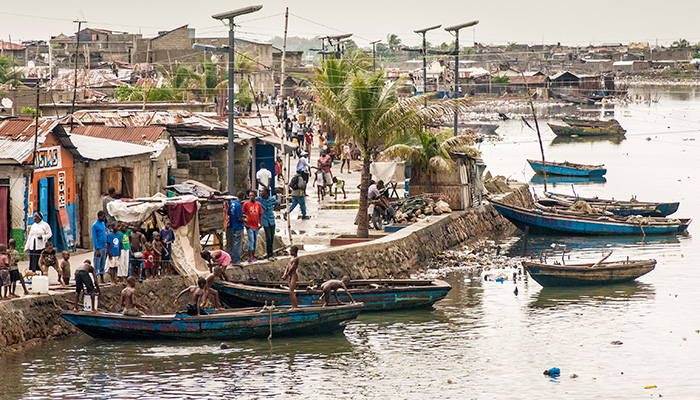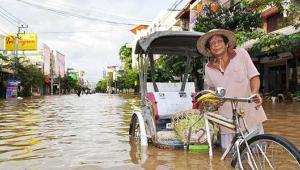The agency’s human development report for the region, published yesterday, warns that the biggest threat to its progress is the relapse of millions of families into poverty, alongside the factors constraining them from rising to the middle classes.
Between 2003 and 2013, around 72 million people in the region were lifted out of poverty and 94 million rose to the middle classes, propelled by the region’s booming growth at the time.
But the UNDP said the economic slowdown of the past few years, limits of the labour market and the fiscal ceiling preventing the further expansion of initiatives like cash transfer programmes are holding back progress. In 2015 and 2016, the first time in decades, the number of poor people in the region rose.
Jessica Faieta, the UN assistant secretary general and UNDP regional director for Latin America and the Caribbean, said now it was crucial to both protect the region’s past achievements and promote inclusive policies for the future.
The UNDP’s report said this will mean building the resilience of the 25-30 million people in the region, out of the 220 million that are vulnerable, who have escaped poverty since 2003 but are now at particular risk of falling back into destitution.
It said this will require a “new generation” of policies that work to strengthen four key factors that enable people to absorb shocks and prevent setbacks, forging a “resilience basket”.
These include: physical and financial assets, such as homes, cars and savings accounts that act as cushions when crises hit; care systems, in particular for children and the elderly; social protection; and labour skills.
The expansion of conditional cash transfer programmes, other social transfers and non-contributory pensions, which accounted for 30% of income inequality reduction since 2002, have now reached a fiscal ceiling, the UNDP said.
One way to strengthen their impact would be to urgently improve the effectiveness and progressiveness of the region’s tax systems, which currently impose such a burden on the poor that it overrides the benefits of these programmes, the report said.
In the labour market, high levels of informality are hindering progress, the UNDP continued. More than half of the region’s 300 million workers are employed in micro-enterprises, are self-employed unskilled workers or earn no wage. Around 70% of the region’s small- and medium-sized enterprises are informal.
“Without future increases in productivity in sectors with unskilled workers, the sustainability of growth and, consequently, of social attainments is undermined,” the report said.
Investing in women and developing strategies for groups that have suffered historical discrimination are also critical, said George Gray Molina, lead author of the report and UNDP chief economist for the region, noting that such challenges will not be solved with economic growth alone.
The report stressed that another economic boom, and “more of the same”, will not yield the same results as it has in the region in the past.
It argued that new metrics that go beyond per capita income, economic growth rates and GDP are needed to measure development, and more “multi-dimensional policies” are needed to advance it.
“The challenges of sustainable, holistic and universal development do not end at a certain income threshold,” said Faieta. “We don’t ‘graduate’ from development challenges unless we can respond accordingly to the multiple dimensions that enable people to live the lives they consider valuable.”














